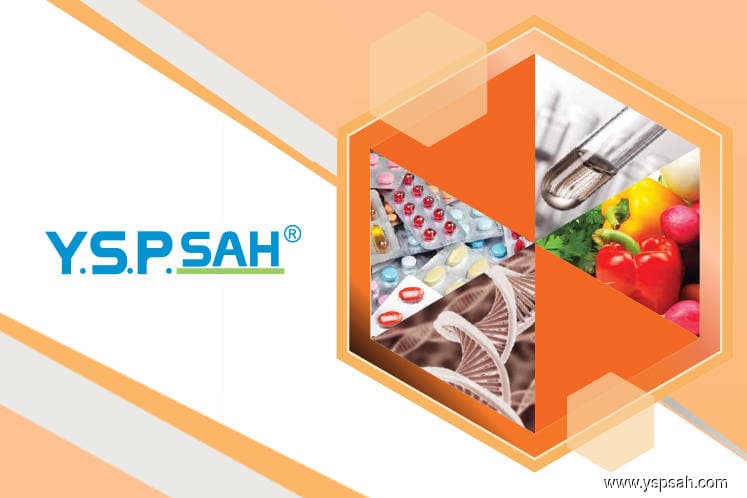
This article first appeared in The Edge Financial Daily on September 18, 2018
KUALA LUMPUR: Entering a new market is not an easy feat when a company moves into unfamiliar territory and it is no different for YSP Southeast Asia Holding Bhd (YSPSAH).
It has been several years since the generic drug manufacturer expanded its footprints into Vietnam and Indonesia, but it has not been all smooth sailing.
According to its president and group managing director Datuk Dr Lee Fang Hsin, the group is not on track to meet its 2018 break-even goal for its Vietnamese operations.
He blamed political tensions between China and Vietnam that led to China’s decision to ban pork imports for the setback in achieving its goal.
YSPSAH operates a pharmaceutical and veterinary plant in Dong Nai, Vietnam, which has been loss making since it began operating in September 2011. It was expected to break even in the current financial year ending Dec 31, 2018 (FY18).
Nevertheless, Lee remains positive about the group’s international foray and refuses to let the setback drag him down as he notes that the pharmaceutical industry takes a longer time to be profitable due to different regulatory policies in each country.
He is of the view that the Vietnamese pharmaceutical, poultry and aquatic businesses are still promising and the group is comfortable with its progress there.
“Barring unforeseen circumstances, we now hope [our Vietnam operations] to break even within the next two years,” he told The Edge Financial Daily in an interview.
In Indonesia, YSPSAH is still waiting for approval for its product registration. As a result, it has yet to start its operations there even though it has obtained licence to run a pharmaceutical plant which is in compliance with the Current Good Manufacturing Practice regulations.
“When everything is settled in Indonesia, we expect to roll out our operations by early 2019 and that is only for one product,” said Lee, adding that YSPSAH is still pending the product registration for about 60 items which he believes will take another five to seven years to completely launch all of them.
Amid the setbacks on the international front, YSPSAH is looking inwards to drive its growth for the next couple of years.
Still, Lee holds on to the target of a 50:50 revenue contributions from its domestic and export markets in five years. In FY17, the group derived 71% of its revenue from the domestic market and the rest from other countries.
For the cumulative six months ended June 30, 2018 (1HFY18), contributions from Malaysia rose to 75.7% of the group’s revenue. The remaining 24.3% came from export sales, a significant decline due to lower sales from Vietnam, which fell by 47.2% year-on-year.
On YSPSAH’s plans to increase participation in government tenders in Asean and Africa and also advance to developed markets such as Canada, Australia and New Zealand, Lee said they have been progressing at a slow pace.
Noting that the healthcare industry is a “sensitive” one and taking into account the differences in regulatory policies in each country, Lee said exporting pharmaceutical products to other countries takes years in order to build trust and relationships with the countries.
He cited YSPSAH’s exports to Canada, which are finally seeing some light after eight years of constant efforts. Even then, YSPSAH is only able to export about three of its pharmaceutical products.
Meanwhile, the market has been largely positive about YSPSAH on the back of news over the potential liberalisation of the Ministry of Health’s procurement contracts.
Since May 14, its share price has risen 21.5% to close at RM2.98 last Friday from RM2.45. Its market capitalisation stands at RM411.66 million.
Lee said YSPSAH currently supplies less than 10 of the 1,200 pharmaceutical products that have been placed on tender to government healthcare facilities.
On going digital, Lee believes that the online business is a “must-do” for YSPSAH, adding that the group plans to build a basic online purchasing system and is expecting the e-commerce platform to be ready by the fourth quarter of 2018.
“Although e-commerce is still not very matured in Malaysia compared to China, the e-commerce business is the future for businesses,” said Lee, adding that the group’s e-commerce business is still at the preliminary stage.
Analysts stay bullish, raise earnings estimates
Analysts covering the stock have raised their earnings projections for YSPSAH for FY18-FY20.
Affin Hwang Investment Bank Bhd analyst Philip Wong, in a report dated Aug 14, lifted the company’s FY18-FY20 earnings estimates by 8%-2% to factor margin gain, forecasting a 2017 to 2019 core earnings per share (EPS) compound annual growth rate of 21%.
“We continue to like the looming structural improvements to the domestic sector including an increasingly export-oriented exposure (38% of total revenue by 2020) underpinning YSPSAH’s prospects for the foreseeable future,” said Wong.
Wong is forecasting the group’s net profit at RM33.5 million and RM39.1 million for FY18 and FY19 respectively. He expects the group’s revenue to be at RM277.8 million and RM310.2 million for FY18 and FY19 respectively.
In a report dated Aug 13, CIMB Investment Bank Research analyst Walter Aw raised the bank’s FY18-FY20 EPS estimates by 5%-11.9%, following 1HFY18 results beating expectations.
YSPSAH saw its net profit jump 43.2% to RM17.08 million in 1HFY18, from RM11.93 million a year ago, while revenue rose 9.4% to RM139.44 million versus RM127.45 million, due to lower cost of goods sold with higher production and productivity.
“This is mainly to account for more profitable sales mix, higher economies of scales, and increased sales in the local market,” Aw noted.
Aw estimates YSPSAH’s net profit to be at RM32.03 million and RM34.49 million for FY18 and FY19 respectively, while revenue is expected to come in at RM293.9 million and RM329.8 million.